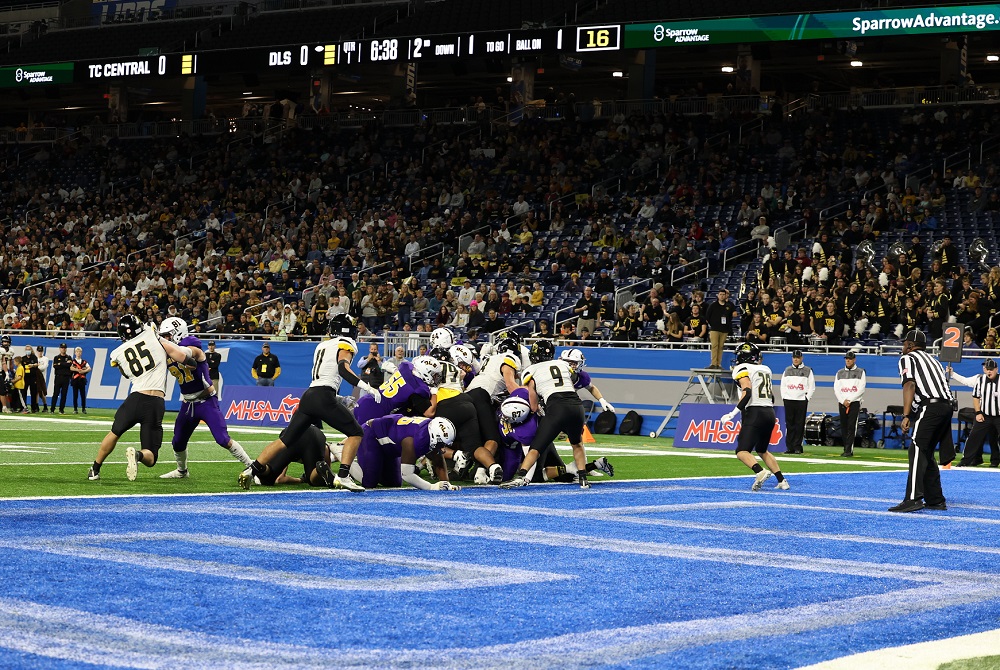
Be the Referee: The Goal Line
November 3, 2016
This week, MHSAA assistant director Mark Uyl discusses how rules regarding the football goal line are at times the same and differ from those at other levels of the sport.
Be The Referee is a series of short messages designed to help educate people on the rules of different sports, to help them better understand the art of officiating, and to recruit officials.
Below is this week's segment – The Goal Line - Listen
There’s an old saying in football officiating that the most important line on the field is the goal line. This is certainly true when it comes to touchdowns as the high school rule is just like that at the college and pro level, where all the ball has to do is break the plane for a score.
One unique part of the goal line under high school rules deals with kicks. Whenever a kickoff or a punt breaks the plane of the goal line, it becomes a dead ball with an automatic touchback.
Now whenever the defense gets possession of the ball in the end zone, it can return a fumble or interception out of the end zone for advancement – except if it’s on an extra point or anytime in overtime.
Past editions
Oct. 27: Help Us Retain Officials - Listen
Oct. 20: Point After Touchdown - Listen
Oct. 13: Untimed Down - Listen
Oct. 6: Soccer Penalty Kick Change - Listen
Sept. 29: Preparation for Officials - Listen
Sept 22: You Make the Call: Returning Kickoffs - Listen
Sept. 15: Concussions - Listen
Sept 8: Equipment Covering the Knees - Listen
Sept. 1: Play Clock Experiment - Listen
Aug. 25: Clipping in the Free Blocking Zone - Listen

Be The Referee: Play Clock
By
Sam Davis
MHSAA Director of Officials
August 30, 2022
Be The Referee is a series of short messages designed to help educate people on the rules of different sports, to help them better understand the art of officiating, and to recruit officials.
Below is this week's segment – Play Clock - Listen
There’s a new rule in football this year that provides the offense more time to draw up a play and prepare matchups when the defense commits a foul.
In the past, if the defense committed a foul, the play clock would be set to 25 seconds, potentially changing the approach by the offense entirely.
Under the change, when the defense or receiving team commits a foul, the play clock will start at 40 seconds, giving the offense an extra 15 seconds to prepare their scheme for the next play.
For all other administrative stoppages, including fouls against the offense or kicking team, the play clock will be set to 25 seconds when play resumes.
Previous Editions:
Aug. 23: Intentional Grounding Change - Listen

